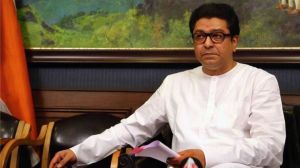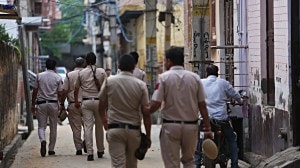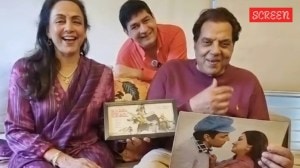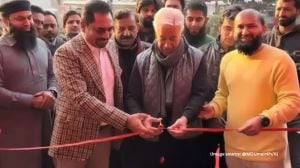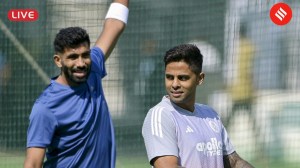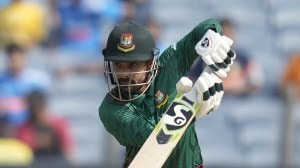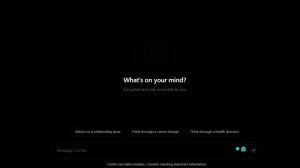Whats Queer about It?
Nearly,a decade ago,the late Chetan Datar wrote Ek Madhav Baug,a play about a mothers discovery of her deceased sons sexuality,his conflicts,struggles and pain,through his diary.
Nearly,a decade ago,the late Chetan Datar wrote Ek Madhav Baug,a play about a mothers discovery of her deceased sons sexuality,his conflicts,struggles and pain,through his diary.
Nearly,a decade ago,the late Chetan Datar wrote Ek Madhav Baug,a play about a mothers discovery of her deceased sons sexuality,his conflicts,struggles and pain,through his diary. Datar gave it the structure of a play within a play. Actor Rama Joshi played the role of a grief-stricken mother coming to terms with her sons suicide,questioning the social circumstances that led him to take such a drastic step.
Datar,known to be the brightest contemporary Marathi playwright,gave India a bold play that talked about homosexuality at a time it was dogged by stigma. When the play premiered at the annual Arvind Deshpande Theatre Festival held at Awishkar,a hub for experimental Marathi theatre in Mumbai,on January 20,2002,it made the audience take note of a reality they chose to ignore. The gay sons tragic search for a normal life came as a shock to them, recalls Arun Kenkre,one of Awishkars co-founders.
The play,since then,has been translated into several languages and staged in different parts of India. Film actor-turned-director Revathy chose to do it in English for her theatre comeback. More recently,Mumbai played host to another English version of it by actor Mona Ambegaonkar,who has also acted in the Marathi and Hindi versions. The English play was first staged on July 26 this year at the International AIDS Conference in Washington DC.
Despite the Indian gay community making strides in various fields,few serious or significant portrayals of their issues feature in theatre or films. Playwright Mahesh Dattani in his earlier works such as Seven Steps Around Fire,Do the Needful and On a Muggy Night in Mumbai,explored various issues related to the LGBT lesbian,gay,bisexual and transgender world. Naseeruddin Shahs Motley theatre group has dramatised Ismat Chughtais Lihaaf as part of their play Manto Ismat Hazir Ho. The story was banned for lesbian overtones.
But in the last few years,with homosexuality entering the mainstream discouse in the country,directors and playwrights are beginning to explore a theme and an audience,hitherto neglected. Mumbai-based Sunil Shanbag,a friend of Datar,is one such director. Chetan8217;s untimely demise in 2008 was a shock to the Mumbai theatre community. We had worked quite closely. To cope with my sense of loss,I thought I would direct his play. I selected Ek Madhav Baug,but realised that the queer movement in India had moved on since the time the play had been written, he says. With Datars play at its core,Shanbag roped in Sachin Kundalkar to write a new play,Dreams of Taleem,that tried to portray the contemporary queer world. Whereas the original was a monologue,he introduced three more characters along with that of the mother8217;s. The play had several personal histories embedded. When it opened in 2010,it attracted hostile reactions in Mumbai. But in Bangalore,the audience received the play with greater enthusiasm.
In the past few years,Mumbais Akvarious Productions has done a stage adaptation of Pedro Almodovars All About My Mother in which actor Ratna Pathak Shah shares a relationship with a woman. Their productions A Guy Thing and Baghdad Wedding,written by Michael Puzzo and Hassan Abdulrazzak respectively,have bisexual characters. Citing the successful run of these two plays,their director Akarsh Khurana says,The audience is now open to characters whose portrayals are realistic. They are no longer stereotypical representations of the community which were meant just for gags, he says. Cock,written by British playwright Mike Bartlett,which featured in Mumbai8217;s annual Thespo festival last year had a bisexual man as its central character. It went on to bag the festival8217;s top honours in acting for both its lead actors. The audiences acceptance could be why the play featuring Ambegaonkar and produced by the Humsafar Trust is now a ticketed show.
But the list of Indian plays on the subject is not long enough. Delhi-based Neel Chaudhuris Still and Still Moving,a very intense account of a gay relationship,is another such instance. For him,however,it started out as an attempt to write a love story. I wanted to explore why love stories are fractured. My story was not meant to be one of those feel-good-ones shown in movies,but more real in nature broken and messy, he says. During the Writers8217; Bloc 3 in 2011-12,which mentors playwrights,he reworked a story he had earlier written for an anthology of erotic fiction. The more I explored the idea,the more it seemed to work best with two men in love, he says.
To this,Chaudhuri added the buoyancy of the queer community after Article 377 was revoked and the interesting social phenomenon that the Metro in Delhi had given birth to bringing the citys elite closer to commoners in its compartments. Thats how Adil,a spirited college student,met his partner Partho,who is much older and a very private person. They come together in this love story of unequals.
Both Shanbag and Chaudhuri focus on contemporary psyche in their plays,Dreams of Taleem and Still and Still Moving respectively,without being didactic about queer agenda. The directors,however,have not shied away from showing physical intimacy,an aspect that shows the complexities that exist in these relationships. They insist it8217;s not a controversy-courting stunt.
Inspite of the mainstream convergence,however,the plays have not had a prolonged run. While Shanbag did nearly 30 shows,Chaudhuri has not been that fortunate. Barring the shows in Mumbai during the Writers8217; Bloc Festival in January,it has been a dry spell for Still and Still Moving. Actor Gandharv Dewan,who plays the role of Adil left to join the National School of Drama,and Chaudhuri has not found a suitable replacement yet. He,however,hopes to stage it again during the upcoming NSD theatre festival.
But these are at best exceptions in a society just about opening up to the queer way of life. There are great stories out there in the real world,and this includes the queer experience,but our theatre doesn8217;t really push the envelope it wants to remain insular, says Vikram Phukan,a theatre critic and former editor of Bombay Dost,a queer magazine. He feels gay issues were handled quite well in Still and Still Moving,Cock and Dreams of Taleem. Cock tried to ask some important questions about bisexuality,and Still and Still Moving was wonderful because it updated the gay love story to our times, Phukan says.
Interestingly,the gay community has not responded enthusiastically to these plays. Shanbag had expected more presence from the community in the audience for Dreams of Taleem. But they did not show up in good numbers for the Mumbai shows. This made him realise that his play was perhaps,too truthful and painful for a queer audience. He says,Queer persons do not always want to see the issues of their community represented. They like,everyone else,want their share of entertainment.
- 01
- 02
- 03
- 04
- 05








